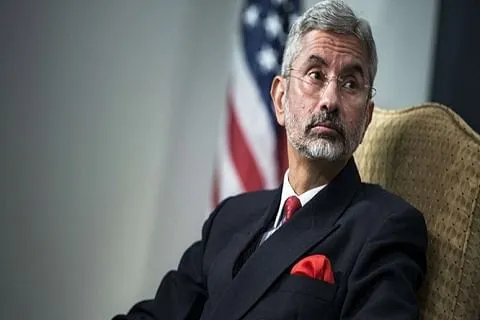New York: External Affairs Minister S Jaishankar Wednesday said that hosting Osama bin Laden and attacking a neighbouring parliament could not serve as credentials to sermonise before the United Nations Security Council (UNSC).
At the United Nations Security Council’s open debate on ‘Maintenance of International Peace and Security: New Orientation for Reformed Multilateralism’, Jaishankar said: “The credibility of the United Nations depends on its effective response to the key challenges of our times – be it pandemics, climate change, conflicts, or terrorism. While we search for the best solutions, what our discourse must never accept is the normalisation of such threats. The question of justifying what the world regards as unacceptable should not even arise. That certainly applies to state sponsorship of cross-terrorism. Nor can hosting Osama bin Laden and attacking a neighbouring parliament serve as credentials to sermonise before this council.”
Making an indirect attack at China and Pakistan, he said that even as the world was coming together with a more collective response on the challenge of terrorism, multilateral platforms were being misused to justify and protect the perpetrators.
The External Affairs Minister was referring to China blocking a proposal at the UN Security Council to designate Pakistan-based Jaish-e-Muhammad (JeM) deputy chief Abdul Rauf Azhar as a global terrorist.
Abdul Rauf, the younger brother of JeM chief Masood Azhar, is accused of being involved in planning and executing numerous terror strikes in India including the hijacking of Indian Airlines aircraft IC814 in 1999, the attack on Parliament in 2001, and the targeting of the IAF base in Pathankot in 2016.
China had put a technical hold on a joint proposal at the UN Security Council by India and the US to blacklist him although all other 14-member states of the top UN body had supported the move.
China had earlier blocked a similar joint proposal by India and the US to blacklist Pakistan-based deputy leader of Lashkar-e-Taiba (LeT) Abdul Rehman Makki.
“This debate and it’s outcome will not only help determine what kind of UN we wish to see, but also global order that best reflects contemporary realities,” Jaishankar said.
He said: ‘The Need for a New Orientation for a Reformed Multilateral System or NORMS, as we’ve titled it, flows from this widespread recognition. While the matter concerns the fullest constituency of member states, UNSC too has an important stake in the consideration of this crucial question.”
Jaishankar said that while the debate on reforms had meandered aimlessly, the real world meantime had changed dramatically.
“We see that in terms of economic prosperity, technology capabilities, political influence and developmental progress,” he said. “Broader dispersal of capabilities and responsibilities expressed for example, in the emergence of G20. That realisation is now steadily percolating through the wider membership of the UN.”
Jaishankar said: “At the 77th UNGA, we were all witness to a growing sentiment in favour of reform. Our challenge is to translate that into concrete outcomes.
He said that the UN Secretary General had rightly called for ‘transforming this moment of crisis into a moment of multilateralism’.
“But that moment must capture this sense of change, and not remain a prisoner of the past,” Jaishankar said. “After all, our Common Agenda and the Summit of the Future will only deliver results, if they respond to the growing calls for reformed multilateralism. Reform is the need of the day. I’m confident that the Global South especially shares India’s determination to persevere.”
He said that the member states from Latin America, Africa, Asia, and the Small Island Developing States should have credible and continuing representation in the Security Council.
Jaishankar said that the decision about their future could no longer be taken without their participation.
“Equally important is to make working methods and processes of the global institutions, including this council, more accountable, objective, and transparent,” he said.






